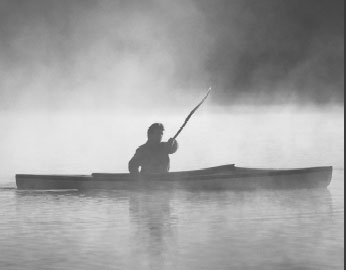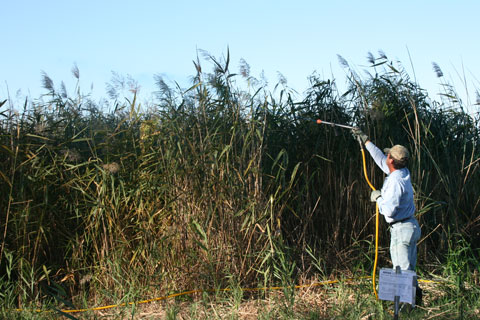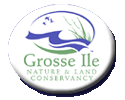

Vol. 19 No. 1
Spring is a natural resurrection, an experience in immortality -Henry David Thoreau
In this issue...
Reflections from the President
Celebration for the Gibraltar Bay Unit of the Detroit River International Refuge
2010 GI Conservationist of the Year Award
Second Sundays at the Wildlife Refuge/Nature Area
Michigan Amphibians and Mudpuppies Survey
Small Machines - Big Polluters
Upcoming Events...
May 1
Earth Day
1PM to 4PM
Centennial Farm
Contact Liz Hugel
734-552-8950
May 13
Habitat for Learning Workday
8AM to 4PM
Parke Lane Elementary
Contact Courtney Solenberger-McNeill
734-692-5007
Nature Area Open
Every Sunday
1-4PM, May 8 to Oct. 30
May 15
Interpretive Nature Walk
1PM to 4PM
Nature Area
Contact Courtney Solenberger-McNeill
734-692-5007
November 5
Annual Meeting
10AM to 11:30AM
Centennial Farm
Freshwater Future Grant for Phragmites Control
 |
|
Herbicide treatment of phragmites funded by Freshwater Future |
A grant of $3575 from Freshwater Future, for the eradication of the phragmites at our BASF/Wackman-donated property on Meridian, north of Bridge Road, was given in 2010. The phragmites have been engulfing the property with its invasive and dense growth, eliminating all other plants at the shoreline and creating an environment inhospitable for wildlife, including waterfowl, amphibians, reptiles and small mammals. Despite the efforts of Conservancy volunteers who worked for many years cutting and treating phragmites at this site, it was time to call for professional assistance. With the Freshwater Future funds and guidance from Ducks Unlimited we were able to adopt the state’s recommended best management practice for phragmites control. This initially entailed a professional and thorough application of herbicide in the fall, when the plant was actively translocating food produced in the foliage to the rhizomes and roots, before frost and dormancy. The next step is the removal of the thick thatch by a prescribed, controlled burn. Thatch removal by fire creates a more beneficial environment for native plant species and stimulates their growth.
With approval of the neighbors and the Grosse Ile Fire Department and notification of all residents living north of Bridge Road, we have planned to proceed with the burn using the services of David Borneman LLC, when weather conditions are appropriate. Extended snow cover this winter and a fairly wet spring have delayed the burn, but we still expect it to take place before mid-May. This ecological use of fire is a natural process. Michigan plant species are not only fire-adapted, many are fire dependent. Fires that occur in the wild by lightning open up forests for the germination and growth of understory wildflowers and permit oaks and other trees to root more readily. Borneman’s Restoring Nature with Fire prescribed burns are done with safety equipment to monitor and control fire. Additional information can be found at www.restoringnaturewithfire. com or by contacting the Conservancy Stewardship Chair, Doug Thiel at (734)255-0957.
